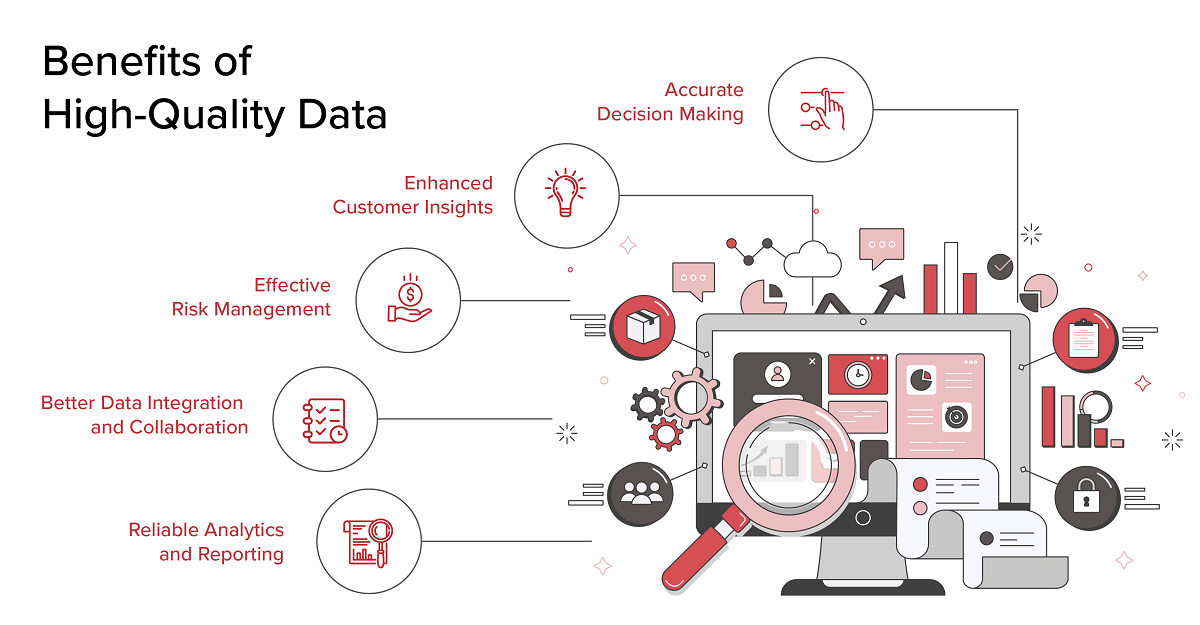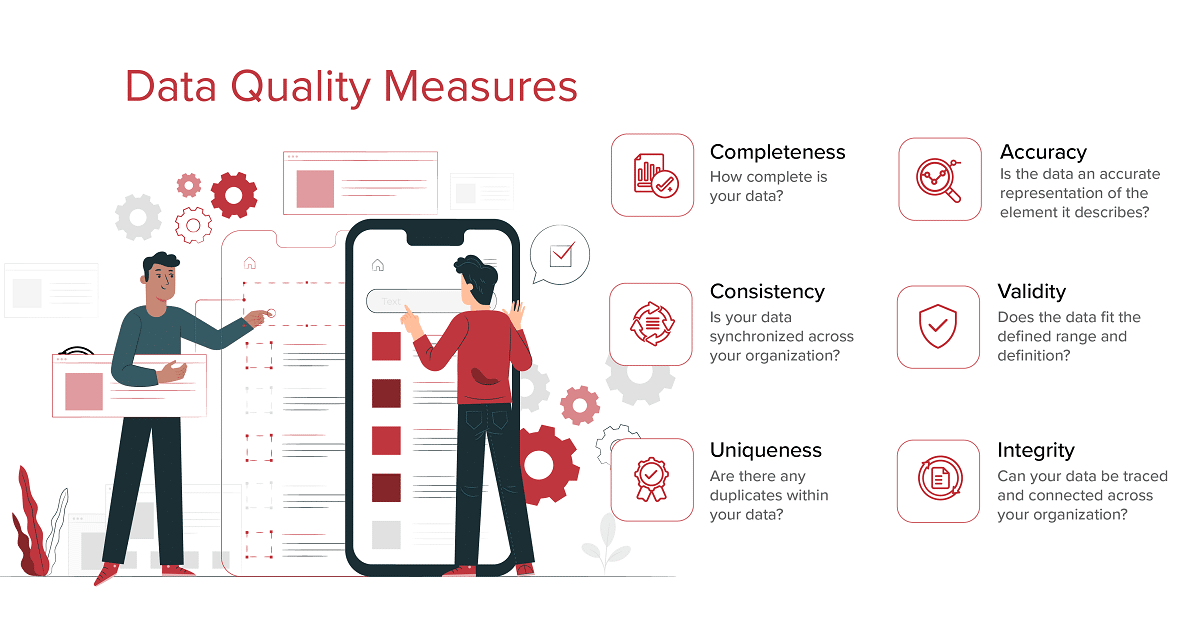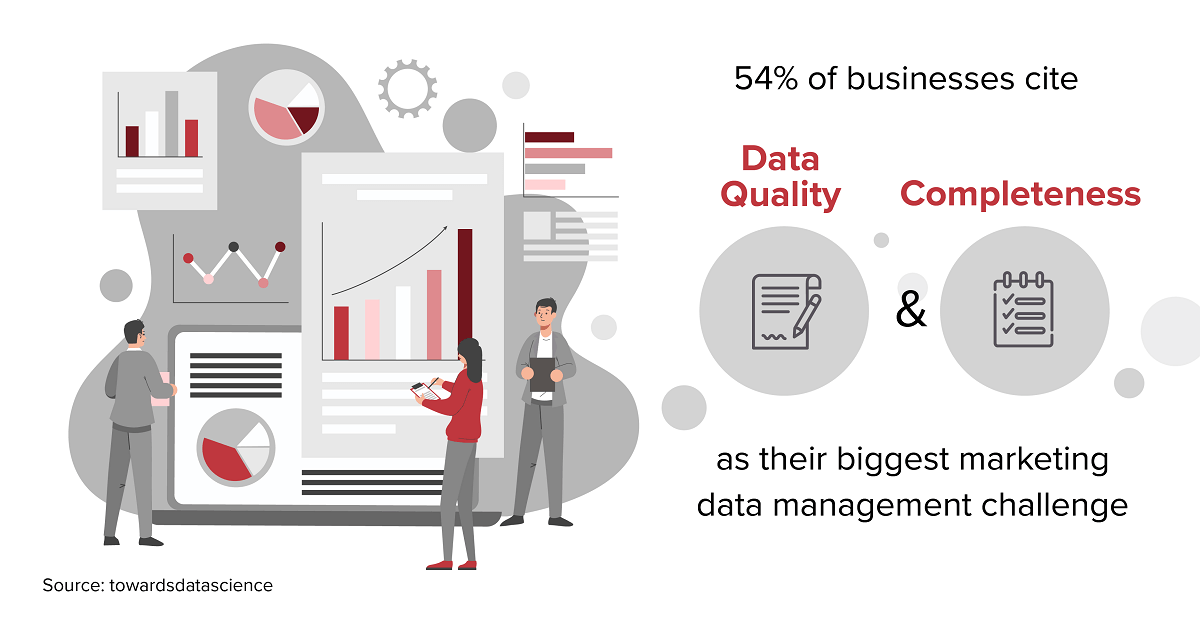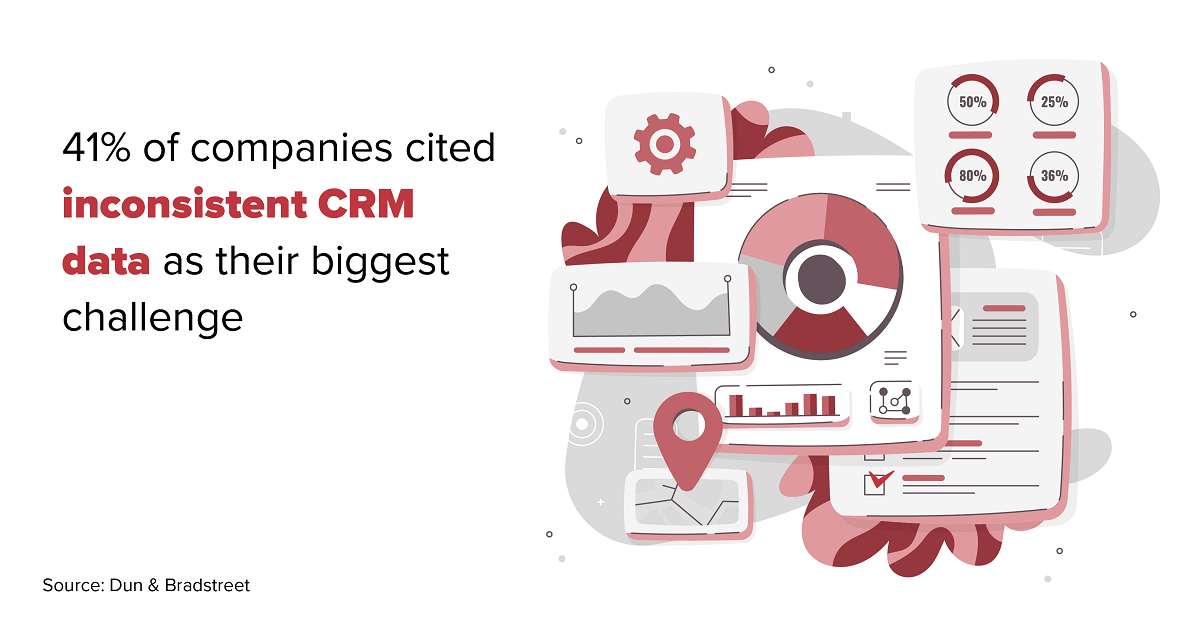Organizations today heavily rely on accurate and reliable information for making informed business decisions. As data volumes continue to grow rapidly, ensuring the quality of data becomes increasingly challenging. Data quality measures serve as a set of guidelines used to assess the accuracy, completeness, consistency, and reliability of data.
The quality of your data can make or break your business. It’s like the foundation upon which your decisions, strategies, and insights are built. Imagine constructing a magnificent skyscraper on shaky ground—it’s a disaster waiting to happen! The same principle applies to data: if your foundation is weak, the consequences can be detrimental.
Organizations that prioritize data quality measures reap the rewards. They gain a competitive edge by leveraging accurate insights, making informed decisions, and delivering exceptional customer experiences. Data quality becomes a strategic asset, empowering businesses to achieve their goals and surpass expectations.
In this blog, we’ll explore how data quality measures can transform your organization from a state of chaos to clarity. From identifying and fixing data errors to ensuring consistency, these measures help you unlock the full potential of your data.
How is Data Quality Measured?
Data quality is easy to identify but difficult to quantify. Picture this: You’re digging into a database and discover that a Mr. John Doe has duplicates. Is it a case of long-lost twins, a double entry error, or a database that forgot its basics? Here is where high-quality data comes to the rescue, ensuring each entity is represented correctly and uniquely.
Data quality isn’t a one-size-fits-all game. Here are a few examples of data quality show how you cannot rely on a single metric to determine data quality.
For instance, in a marketing campaign, customer data must be flawless across all channels. It needs to be unique, accurate, and consistent. This is where data quality measures act like our trusted sidekicks, helping us capture the right attributes specific to our campaigns.
What is a Data Quality Measure?
A data quality measure is a specific aspect or characteristic used to evaluate the quality of data. It represents a particular attribute or property of data that contributes to its overall quality. These measures provide a framework for assessing and improving data quality by evaluating different data attributes. Each measure focuses on a specific element of data management and helps in understanding the strengths and weaknesses of the data.
Data Quality Measures: 6 Key Dimensions
Data quality can be measured on multiple dimensions with equal or varying weights, here are the six key measures commonly used:
1. Completeness
This dimension can cover a variety of attributes depending on the entity. Let’s take customer data as an example. Completeness looks for those vital details like addresses, contact information, and more. But here’s the twist: it understands that not all attributes are created equal.
So, even if the optional landmark attribute is missing from an address, it can still consider the data complete. It’s like saying, “Hey, we have enough to work with”!
Completeness helps customers make informed choices. Imagine going through a lead-gen proposal, and it doesn’t mention the delivery estimate. That’s an incomplete picture. To make meaningful decisions, we need all the essential attributes.
Completeness helps ensure we have enough data to draw meaningful conclusions. It’s all about gathering the right information, whether it’s for customers, prospects, or financial or technical attributes.
2. Accuracy
Data accuracy is a reliable compass that ensures your data aligns with the real world. It’s all about making sure your data represents the actual scenario and can be verified from trustworthy sources.
For instance, having the accurate phone number of an employee means we can always reach them when needed. On the flip side, if you have inaccurate birth details, it can deprive the employee of certain benefits. Accuracy really matters.
Having said that, data accuracy is heavily influenced by how well you preserve it throughout its entire lifecycle. That’s where data governance comes into play. With effective data governance practices, you can nurture and promote the accuracy dimension of data quality.
3. Consistency
Consistency plays a crucial role in capturing the true value of data for analytics and making sure they deliver accurate insights.
For instance, when running a marketing campaign, consistency ensures that the same information used across different channels and records match up. If a customer’s email address is different in your CRM database and your email marketing platform, it can lead to confusion. Here is where data consistency ensures that customer information, such as contact details or preferences, remain consistent across different touchpoints. It’s like having a seamless customer experience where everything flows smoothly, and you can deliver targeted messages without any confusion.
4. Validity
Data validity ensures that the value attributes meet the rules and standards of their respective domains. Let’s take ZIP codes as an example. For a ZIP code to be valid, it needs to have the correct characters that correspond to the specific region. Similarly, in a calendar, months are considered valid if they match the globally recognized standard names.
To assess data validity, you can employ business rules, which provide a systematic approach. These rules act as a filter, determining whether the data meets the required criteria. Invalid data can impact the completeness of your overall data set.
Invalid data can impact the completeness of your overall data set. It’s like missing puzzle pieces that prevent you from seeing the complete picture. You can define rules to handle invalid data. You can take steps to resolve and correct it, ensuring that your data remains complete and reliable.
5. Uniqueness
Uniqueness is a crucial dimension when it comes to data quality. It helps determine if each piece of data in a dataset is distinct. Data uniqueness also improves data governance and speeds up compliance.
Data uniqueness ensures that there are no duplicates or overlaps in your customer records. It’s all about making sure that each customer is represented as a single recorded instance in your data set. No clones allowed.
To measure data uniqueness, you compare each record against the others within the same data set or other data sets. The higher the uniqueness score, the fewer duplicates or overlaps you’ll have. This builds trust in your data and the insights you derive from it. It’s like having a solid foundation for your marketing strategies. Moreover, by identifying data overlaps, you can take proactive steps to maintain uniqueness. Data cleansing and deduplication techniques come to the rescue, helping you remediate those pesky duplicate records.
6. Integrity
Data integrity is crucial for maintaining the accuracy and reliability of data as it moves and is transformed across different systems. It ensures that the attributes of the data are preserved correctly, even when it is stored and utilized in diverse systems. By maintaining data integrity, organizations can effectively trace and connect all their enterprise data.
When data integrity is compromised, it can have a significant impact on the relationships within the data. For example, a customer profile, which typically includes information like the customer’s name and one or more customer addresses. If, at any point in the customer journey, one of the customer’s addresses changes, it can result in an incomplete profile.
While you often come across these 6 common data quality measures, there are other dimensions that represent different attributes of data.
Conclusion
Measuring the dimensions of data quality is a valuable way to identify areas where improvements can be made. By using data quality measures, you can assess whether your data is suitable for use and pinpoint areas that require attention. These rules play a crucial role in ensuring data accuracy, completeness and consistency of the real-world entities.
Leveraging data quality measures helps you evaluate your data quality and enables you to maintain a high standard of data integrity. By using these rules, you can enhance the quality of your data, and better campaign outcomes.
Partnering with a B2B data services provider like us enables access to reliable data, better campaigns and deliver higher ROI.
 Select an element to maximize. Press ESC to cancel.
Select an element to maximize. Press ESC to cancel. Select an element to maximize. Press ESC to cancel.
Select an element to maximize. Press ESC to cancel.Frequently Asked Questions
Although it may be simple to identify, data quality is challenging to quantify. To get the right context and measurement approach for data quality, you can consider multiple data attributes. For instance, customer data must be distinct, accurate, and consistent across all engagement channels in order for a marketing campaign to be successful. Dimensions of data quality capture the characteristics unique to your context.
Data quality management assists businesses in improving and governing data quality by defining the roles, responsibilities, procedures, and policies governing the disposition, dissemination, maintenance, and acquisition of data.

Henry Romano





